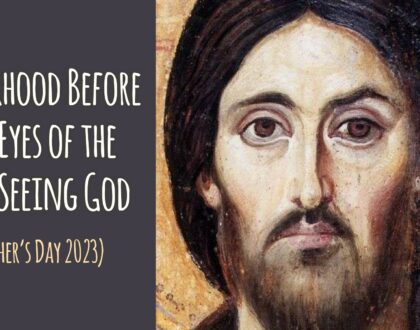Reflection Questions: The Mother Who Wouldn’t Take ‘No’ for an Answer – Even from Jesus! (Mother’s Day 2024)

by Pastor Gene
The points below, culled from various sources, address the complex and multi-faceted concept of the silence of God. They are presented here as points for personal reflection.
- God’s silence can teach us the wisdom of being silent: Someone said, “Wise men are not always silent, but they know when to be.” “It is better either to be silent or to say things of more value than silence” (Pythagoras).
- God is a great listener: We don’t need to shout to be heard by Him; He hears even the silent prayers of our hearts loudly.
- God’s silence can be a time for gaining spiritual strength: “In quietness and in trust shall be your strength” (Isa. 30:15).
- God’s silence can be a place to contemplate who God truly is and that He’s with us: “Be still, and know that I am God. I will be exalted among the nations; I will be exalted in the earth!’ The Lord of hosts is with us …” (Psalm 46:10-11a).
- God’s silence can be a test of faith: “We may earnestly seek God but in return only sense His silence. And this silence can be difficult, frustrating, even excruciating” (Mario Malik).
- When God is silent, we should remember that He will not always remain so: “Our God comes; he does not keep silence; before him is a devouring fire, around him a mighty tempest (Psalm 50:3).
- God’s silence can be a time for prayer and petition: “When the Lamb opened the seventh seal, there was silence in heaven for about half an hour … and the smoke of the incense, with the prayers of the saints, rose before God from the hand of the angel” (Revelation 8:1, 4).
- Since last Sunday’s sermon was in honor of Mother’s Day, take a moment to share the greatest lessons you learned from your mom. If you are a mom, what are the most important lessons you’ve tried to teach your children?
- Have someone read Matthew 15:21-28 for the group. It’s a challenging passage to be sure! What do the disciples’ words reveal about them (15:23b)? What was going on in their hearts? Why do you think Jesus is initially silent (15:23a)? Why do you think Jesus speaks to this woman the way He does (15:24, 26)? How does the woman respond to Jesus’ words – and how does she not respond (15:25, 27)? How do you think you would have responded to such an apparent put down? What does Jesus eventually find so astonishing about this woman (15:28)? What are the implications of this passage on the worldwide mission of the Church [remember, this woman is a Gentile, a Canaanite] (see Luke 2:22-32 [especially v.32a]; all of Acts 10; Matthew 28:19-20)?
- The woman begged Jesus, “Have mercy on me,” and “Lord, help me” (Matthew 15:22, 25)? Yet, it was not her, but her daughter, who was in trouble. What does this tell us about the powerful bond and empathy which exists between parents and their children? Why does the woman specifically ask for “mercy”?
- I also made the point that ‘silence does not mean no – that silence means, keep praying – that sometimes silence can be encouraging.’ Do you agree? Why or why not? How did the Canaanite woman see a ray of hope in Jesus’ silence? How did she respond to His silence? (Discuss the points on the reverse side of this sheet as a group only if time allows.)
- One of the points I made for moms is to always approach God believing. But this is not just a ‘mom’ thing; it’s for all believers. Have someone read James 1:5-8. What does it mean to “lack wisdom” (1:5)? How is a believer who doubts like a “wave of the sea … driven and tossed by the wind” (1:6)? What’s the difference between being “driven” and being “tossed”? What might the “wind” represent here? Why is “the one who doubts … unstable in ALL his ways” (1:8).
Recommended Posts

Reflection Questions: Fatherhood Before the Eyes of the All-Seeing God (Father’s Day 2024)
June 16, 2024


